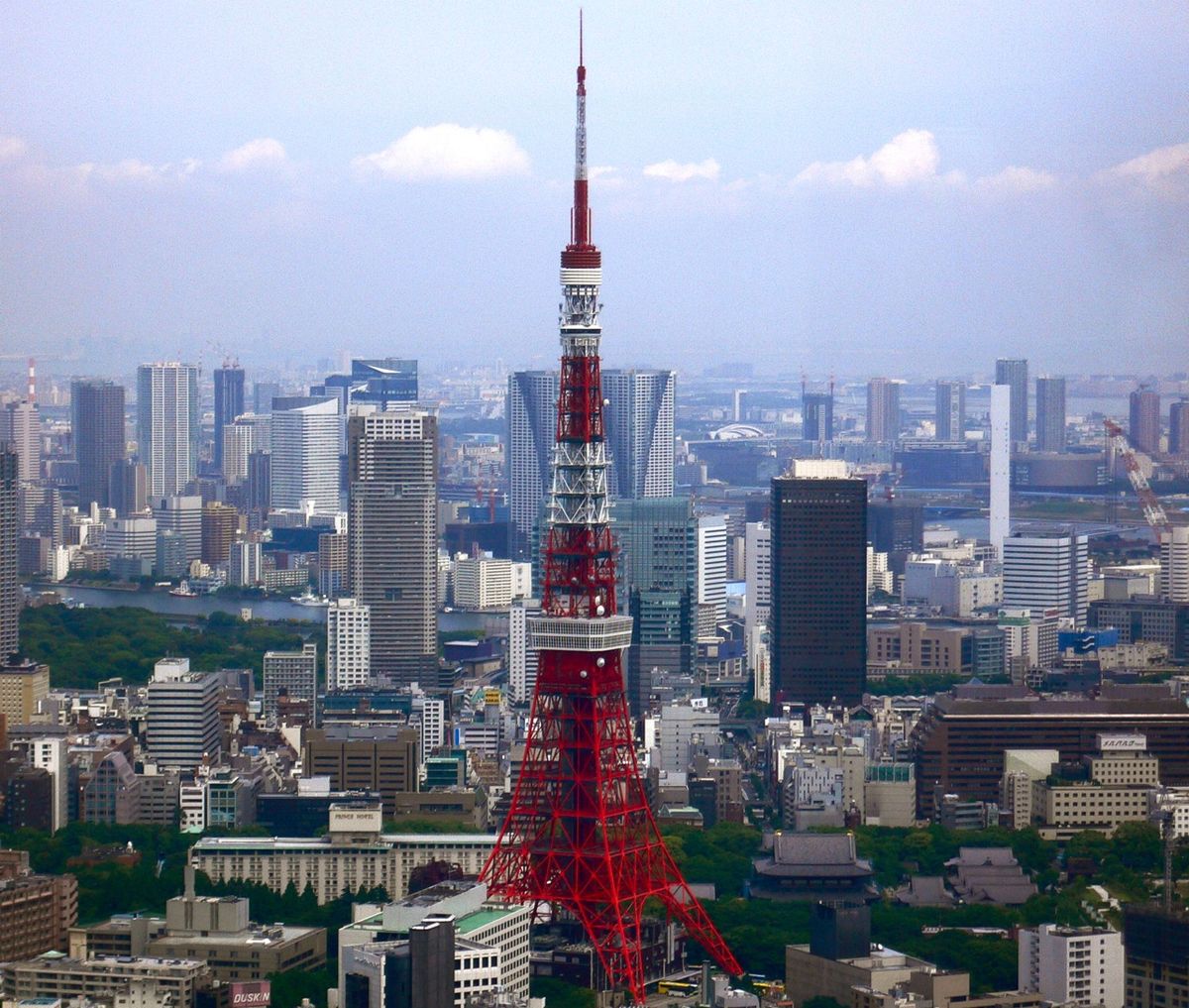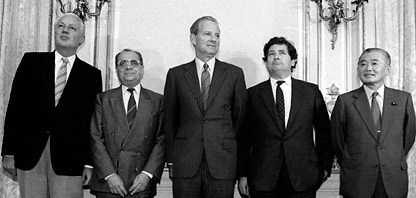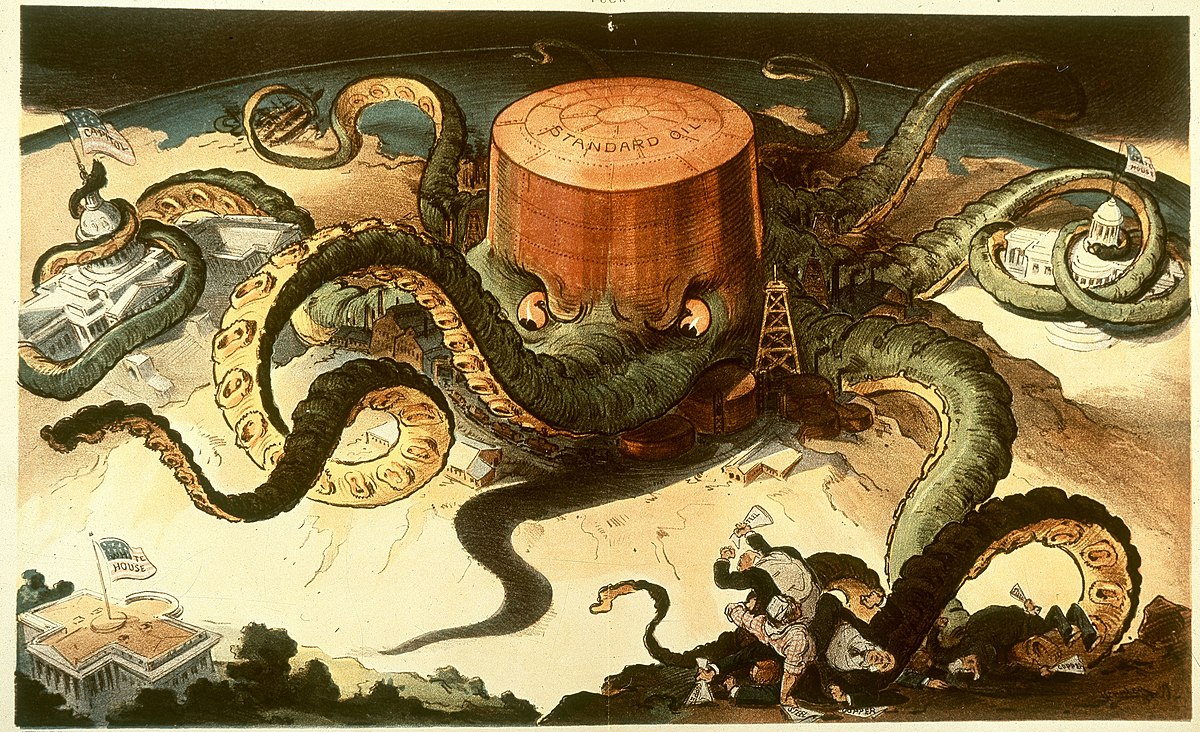- Joined
- Mar 3, 2014
- Messages
- 2,938
- Likes
- 3,342
Plaza Accords II : How Hindenburg threatens to derail India`s economic trajectory
-Pratik Maitra
Recently, there has been a seismic shift in the Indian stock markets after the publishing of a report by an US-based short seller "activist" organization called Hindenburg. The report details the alleged malpractices of the Adani group who have been accused of stock manipulation via round-tripping , dubious auditing of the financials and other fraudulent activities. The motives of the Hindenburg group,however noble they might seem, are questionable. Hindenburg stands to gain an astronomical sum of money from their short position if the Adani stocks tank into oblivion. The report has already scuttled the Adani group`s initial FPO deal and the scion of the Adani empire had to make a morose public appearance to announce the withdrawal of their much hyped FPO. Another cynical observation one might make is the inopportune nature of the report. The report comes at a time when India`s ruling establishment and its supremo has been targeted by a documentary published by the BBC. To further add salt to the injury, the report has also major geopolitical implications for India which are far more serious and damaging to the nation than one can fathom. Adani has been the major investment arm of the Indian government and had taken up a number of initiatives across the globe, particularly in Sri Lanka, Central Asia,Australia and Israel, to develop the infrastructure and the ever-growing energy needs of these countries. In return India stands to build a global alliance of countries which can effectively challenge the Chinese hegemony in these regions. While the role of China in instigating Hindenburg to publish such a damning report of one of India`s largest business conglomerates cannot be ignored, one needs to be cognizant of the other big player in this Machiavellian game of geopolitics.
The dark horse which many people have been ignoring in this fiasco is none other than the nefarious Uncle Sam. While one might argue that the USA stands to gain much from a strong and resilient India, as it would become an effective counterweight to the Chinese ambitions, we also need to dig deeper and look at the fundamental motives of US foreign policy thinkers. The US has derived much of it`s culture, ethos, language and civilizational values from its mother country, Britain. Both countries developed a foreign policy suited to their unique geographic location. Britain being an island separated from the continent believed in the Concert of Europe during the post Napoleonic era while the US being in an continent of it`s own implemented the Manifest Destiny. The overarching goal of both nations was to prevent any nation from becoming a top dog in their immediate neighborhoods and pose a challenge to their hegemony. Thus both nations would try to pit one enemy nation against it`s regional neighbour and would undermine and destabilize any upstart nation that had the potential to become their rival. The bipolar world of the post WW 2 era saw the USA use regional rivals of the USSR like China to limit Soviet hegemony and divert much needed resources of the Soviets away from it`s struggling economy to the military. The USA also had measures to keep even their allies in check be it a resurgent France under De Gaulle or a nation like Britain during the 1971 Bretton Woods crisis. However, one often forgets the tragic tale of one allied nation which ended up being a victim of nefarious US policies. This was Japan-the workshop of the world. The US had believed that a much subdued Japan after WW 2 would never challenge the debt fueled US economy. Yet the industrious and resourceful Japanese proved them wrong and by the late 1980`s Japan was projected to not only overtake the US economy but also undermine the US markets reeling from years of low exports and poor work ethics. Thus the US policymakers left no stone unturned to prevent that possibility and cajoled the Japanese to sign the Plaza Accord, which would end up wrecking the Japanese economy.
To understand the implications of the Plaza accord, one has to take into account how export and import markets work and their effect and dependence on a nation`s currency. After the scrapping of the Bretton Woods the US instituted the petro-dollar world economy where the dollar would become the unofficial reserve currency of the world. The US promised to maintain the utopian ideals of free trade policy and let the dollar appreciate or depreciate based on the economic output of a country. The worth of a nation`s currency is dependent on it`s monetary value of it`s exports minus it`s imports, which is also dubbed the balance of trade. A country which exports more than it imports would see a growth in it`s economy and vice versa. To make exports more attractive to the world countries often under-appreciate or devalue their own currency through various economic policies. A country with a positive balance of trade can always use the excess money it got from it`s exports to prop up its real estate sector,social services or invest it in the industrial infrastructure of the nation. A country can also resort to other measures like changing it`s interest rates to control the value of it`s currency. The US which had once been a industrial powerhouse during WW 2 had seen its economic output reduce drastically in the 80`s and the dollar appreciate highly against the Japanese yen due to a negative trade deficit. Another factor contributing to the strong dollar was the anti-inflationary measures taken by the US administration to combat stagflation. The economic rut and social troubles greatly alarmed US policy makers. A smaller economy would lead to lesser geopolitical might and eventually lead to the US becoming servile to the top economic country. At the same time Japanese companies were making a killing by exporting highly praised well designed products throughout the world including the USA. Japanese companies like Sony, Honda , Toyota , Nintendo, Sega, Panasonic , Hitachi , Canon had become household names in America. The American consumers were lapping up Japanese products like crazy increasing the already massive trade deficit of the USA. Japanese people with their disciplined work ethic and amazing productivity had brought the US empire to it`s knees, a feat which would be ever elusive even for the Soviets. Japanese car makers started outselling American car makers with their array of small to medium sized cars which were more durable, gave more mileage and were more eco-friendly than American four wheelers. Japanese entertainment giants like Sony,Hitachi and Nintendo captured the American audience with their slew of feautre heavy entertainment devices and gaming systems. One can never forget how the gaming industry survived solely on the success of Nintendo`s NES and Sega`s master drive consoles after the infamous American video game crash of the 80`s. With the entertainment systems came Japanese manga, anime shows and OVAs. The 80`s were the era of timeless anime classics like Nausicaa , Fist of the North Star and Dragon Ball. Japan was sailing high and Japanese were working like crazy and also partying hard in their love hotels and pachinko shops. Who could stop this nation of hard working,industrious and morally upright people who have followed the principles and ideas of Shintoism and Buddhist Dharma.
The US administration soon realized that the next big threat to the US economy would not come from a nuclear Armageddon with the dying Soviet empire but from the land of the rising sun. A stagnant economy which had been crippled by the stagflation of the 70`s , low industrial output with overpriced products ,a heavily burdened middle class and a lethargic workforce was bound to unseat the US from the world`s top economic spot. Thus the US came up with scheme which would put Machiavelli and his Prince to shame. They decided to coerce the Japanese government to strongly appreciate the Yen. This would have the effect of not only reducing the US Japan trade deficit by undermining the monetary value of Japanese exports but also create asset price bubbles in the Japanese real estate. The US knew sooner or later the Japanese would suffer from a major shock when the inflationary bubbles burst. Sadly the Japanese had no way to wriggle out of these unjust policies as the US had been operating military bases in Japan since WW 2. Thus the Plaza Accord,named after the Plaza Hotel where it was signed, effectively doomed Japan to an eventual fate of stagnation, high debt and economic decline. The US which touts the principles of free trade as the cornerstone of it`s foreign policy had violated it without any nation batting an eyelid. Suddenly Japanese products not only seemed less appealing due to their prices but the once maligned American products suddenly became more appealing to the world. Japanese companies soon saw their profit margins shrink drastically which had a domino effect not only on the quality of their products but also on their cutting edge innovative capabilities, The Bank of Japan also made some questionable monetary and fiscal decisions which would further deepen the hole to which the Japanese would ultimately find themselves in.
The end came in 1992. While the US was emerging as the sole victor of the Cold War, the much less talked about Plaza Accord had also ensured the demise of it`s economic rival. Nippon would see a asset price bubble burst unprecedented in it`s history. Japan would experience a crash which not only shrank it`s economy but also made thousands penniless,homeless and destitute due to the economic rout. Japan would see it`s economy shrink and find itself it a slump unlike any nation in history. The Japanese economy would remain stagnant for the next three decades giving rise to the lost decades of Japan. The demise of Japan was truly a remarkable one. With an ageing population and poor economic growth Japan is unlikely to regain the spot it had once worked so hard for.
Now we come back to the Hindenberg report and it`s parallels to the Plaza Accord. Today`s China mirrors the USSR of the 1980`s and the growing economy of India to that of 80`s Japan. Indian companies like Tata, Ambani and Adani are taking over the world and the US is not oblivious to the implications of such takeovers. The deja vu one can experience by looking at 80`s and today`s situation is not questionable. The US policy makers have been trying to covertly fight a resurgent India under Modi by not only undermining its reputation but also by curtailing the economic reach of Indian companies. The Hindenberg report seeks to cripple India geopolitically. Without companies like Adani investing abroad India can never take on the mantle of a global player. From a land which had robber barons like Rockefeller,JP Morgan, Vanderbilt, we hear reports about the crony capitalism of India. As for the myopic and spineless compatriots of my country, I would like to remind them of the message of Upanishad , Vedanta and Buddha. The truth is not always as what it seems. The world is illusory(maya) and the West can never be trusted. Unless India and Indians want to find themselves as a reincarnation of modern Japan they should wake up and smell the coffee. A strong India would benefit not only the entrenched privileged classes but also the masses of poor underprivileged people who do not have a recourse for migrating out of the country. I hope India stands strong and comes out of this quagmire with greater resilience.
Last edited:




